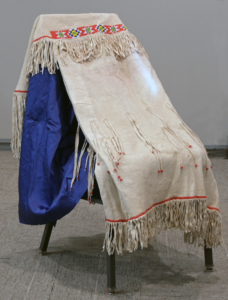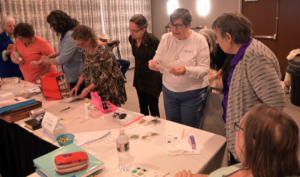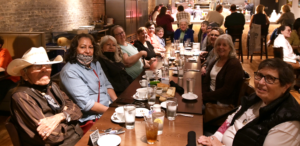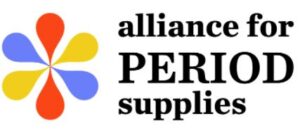Nutriendo a Babilonia
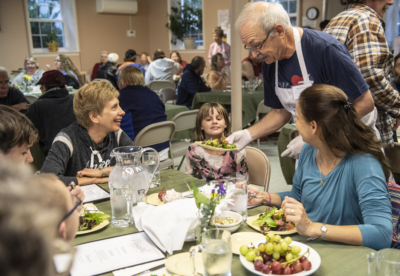 La Villa de Babilonia en Long Island, New York, es notoria por ser un lugar seguro, amigable y hermoso para habitar. Babilonia es la costa del sur del condado Suffolk en Long Island, haciéndola así en un lugar bien popular durante las vacaciones de verano, pero el área del centro pone en despliegue restaurantes de lujo, un teatro histórico, al igual que bicicletas que mantienen a la gente oriunda de la zona y a los visitantes ocupados todo el año. La Iglesia Episcopal de Cristo ha surgido entre las casas de múltiples pisos y pintorescos parques desde 1930.
La Villa de Babilonia en Long Island, New York, es notoria por ser un lugar seguro, amigable y hermoso para habitar. Babilonia es la costa del sur del condado Suffolk en Long Island, haciéndola así en un lugar bien popular durante las vacaciones de verano, pero el área del centro pone en despliegue restaurantes de lujo, un teatro histórico, al igual que bicicletas que mantienen a la gente oriunda de la zona y a los visitantes ocupados todo el año. La Iglesia Episcopal de Cristo ha surgido entre las casas de múltiples pisos y pintorescos parques desde 1930.
Lo que puede sorprender al promedio de los visitantes es que “Nutriendo a Babilonia” – una comunidad que se encarga en alimentar a las masas y que se reúne semanalmente- ha venido sirviendo a 50-60 comidas tipo restaurante y de calidad a los lugareños cada lunes por la noche desde su fundación en el año 2021. El ministerio se ha convertido en una iniciativa que suministra alimentos. Esta organización de 60 voluntarios ahora mantiene un jardín orgánico comunitario; recolecta y distribuye ropa, indumentaria para los exteriores, artículos para el aseo personal; conecta a huéspedes con baños portátiles; emplea a trabajadores sociales a medio tiempo para revisar las necesidades en general; y mantiene una estrecha relación con organizaciones cívicas, negocios, organizaciones sin fines de lucro, y socios filantrópicos.
Este ministerio, que hoy en día florece, paso por una dura resistencia en sus orígenes. Muchos miembros de las zonas más ricas de la comunidad en derredor a la Iglesia de Cristo asistieron a la reunión local de la junta de zonificación en protesta toda vez que se enteraron del plan de alimentar a los residentes hambrientos en su vecindario. Ellos citaron como sus preocupaciones el hecho de que habrá estacionamiento limitado, trancones en las vías, un auge en la criminalidad, y la propiedad de la zona será vulnerable en lo atinente a sus valores en el mercado de bienes raíces. Por otro lado, aquellos que apoyan esta iniciativa hablaron tajantemente acerca de la necesidad de reconocer y ayudar a los vecinos más vulnerables.
La iglesia nunca necesito de la aprobación del gobierno local para lanzar este ministerio, debido a que sus derechos están afianzados en la Libertad religiosa, pero la publicidad derivada de este debate público y notorio les gano apoyo para emprender la iniciativa “Nutriendo a Babilonia” desde sus comienzos. Diane Gaidon, quien ha sido la coordinadora de “Nutriendo a Babilonia” desde el principio, atribuye una porción de sus finanzas consistentes y el éxito que ha tenido la iniciativa en materia de voluntarios, a la visibilidad que ha tenido dicha iniciativa en los medios de de comunicación.
Desde su publicidad inicial, el equipo de “Nutriendo a Babilonia” ha convertido en prioridad el ser reconocido dentro de la comunidad, ya que esto se convierte en algo esencial para asegurar que el ministerio satisfaga las necesidades de los lugareños, atraiga a voluntarios, y sea financieramente sostenible a largo plazo. Desarrollar relaciones con los medios de comunicación local, Iglesias, y comunidades grupales ha sido crítico para el éxito del ministerio. Adicionalmente, hacer visibles dentro la parroquia los éxitos y los retos, en su página web, y a su vez, el publicar reportes y materiales de mercadeos son otras de las formas vitales de crear una concientización al respecto del ministerio.
Adentrados ya seis meses en la iniciativa de servir comidas semanalmente, las quejas de la comunidad virtualmente cesaron. Porque la Iglesia no tenía un estacionamiento adecuado para recibir el influjo de voluntarios e invitados cada lunes por la noche, “Nutriendo a Babilonia” estableció un sistema de estacionamiento efectivo basado en su deseo de ser vecinos modelos. El sistema reservo puestos de estacionamiento accesibles para las personas con discapacidades físicas y pidió a cualquiera que tuviera la capacidad de caminar que estacionara en las calles adyacentes. Un pacto de comportamiento fue establecido para cerciorarse que todos los invitados sean tratados con dignidad mientras prohibía a su vez el uso de drogas, estupefacientes, o alcohol durante el servicio de comidas los lunes.
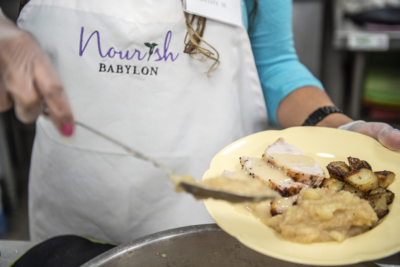 En retrospectiva, Diane dice que el conocimiento que el equipo ha reunido de esa consulta y debate iniciales dentro de la comunidad fue invaluable para el ministerio. Los miembros de la comunidad tenían una plataforma para discutir desavenencias, y los voluntarios fueron capaces de conseguir soluciones sin menoscabar la integridad del ministerio. Esto fue vital para el equipo a la hora de realizar su trabajo porque podían escuchar atentamente las preocupaciones de las personas afectadas y responder de manera acorde. Este método de escuchar los retos e implementar soluciones concretas es ahora un elemento fundamental para el trabajo de “Nutriendo a Babilonia.”
En retrospectiva, Diane dice que el conocimiento que el equipo ha reunido de esa consulta y debate iniciales dentro de la comunidad fue invaluable para el ministerio. Los miembros de la comunidad tenían una plataforma para discutir desavenencias, y los voluntarios fueron capaces de conseguir soluciones sin menoscabar la integridad del ministerio. Esto fue vital para el equipo a la hora de realizar su trabajo porque podían escuchar atentamente las preocupaciones de las personas afectadas y responder de manera acorde. Este método de escuchar los retos e implementar soluciones concretas es ahora un elemento fundamental para el trabajo de “Nutriendo a Babilonia.”
La iniciativa “Nutriendo a Babilonia” se expandió en maneras únicas en respuesta a los deseos manifiestos y necesidades de los invitados. En el año 2016, mientras el Ministerio todavía estaba predominantemente abocado a servir comidas, las comidas de los lunes se transformaron en un tiempo significativo para que los voluntarios se conectasen con los invitados. Las plegarias nocturnas fueron une de las peticiones tempranas que ya se había convertido en parte de las rutinas de los lunes por la noche. El acceso a las duchas fue otro reto, y “Nutriendo a Babilonia” se asoció con una organización llamada “Manos a través de Long Island” para proveer duchas portátiles y de esa forma los invitados podrían acicalarse en preparación a la ingesta de las comidas tipo restaurante. A lo largo de los años, algunos de los miembros de la comunidad de “Nutriendo a Babilonia” han perecido, y sus funerales y velorios fueron sostenidos en la Iglesia de Cristo. Este simple homenaje a la vida- tan ajeno a muchas personas sin recursos o a familias que les importe- es un testamento al bálsamo espiritual que “Nutriendo a Babilonia” otorga.
Crear una experiencia cómoda, afectiva, y dignificante para los invitados es una parte esencial de la visión que proyecta el ministerio “Nutriendo a Babilonia.” A medida que el ministerio avanza y se adapta, queda claro que el llevar a buen término su visión requiere más de una comida por semana. “Nutriendo a Babilonia” se expandió en muchas maneras que los voluntarios no se esperaban cuando lanzaron la iniciativa alimenticia. Voluntarios estudiantiles coordinaron programas para que los invitados agarraran emparedados para llevar y así traer a casa algo para comer después de las comidas de los lunes. Contrataron a un Trabajador Social para revisar las necesidades de los invitados y referirlos a organizaciones locales para que reciban los tan requeridos servicios. La iglesia recolecta abrigos usados e indumentaria para los exteriores y las distribuye los lunes por la noche. “Nutriendo a Babilonia” se expandió de esta manera porque el equipo escucho a las necesidades de sus invitados y respondieron a ellas de una manera crítica. Aunque no todos los ministerios pueden satisfacer todas las necesidades existentes, construir una red de organizaciones y profesionales que puedan satisfacer las necesidades inminentes fue vital para la visión de “Nutriendo a Babilonia” que es la de enaltecer la dignidad de todos aquellos que son servidos.
“Casas asequibles siguen siendo un problema,” Se lamenta Diane. Cuando muchos de los invitados del lunes por la noche aclararon que no tenían hogar, “Nutriendo a Babilonia” llamo a Jean Kelly de la compañía “Mary Brennan Inn” y su Centro de Cambio de Transformación. El modelo usado por dicho centro se enmarca en identificar a los individuos que son más propensos a encontrar y pagar un hogar con recursos limitados y de esa manera, al seguir estos pasos, identificamos el camino que lleva de ser un sin hogar a conseguir uno propio. “Nutriendo a Babilonia” los acompaña en cada paso del proceso: Identificar oportunidades de empleo, redactor currículos vitae, obtener identificación gubernamental, pagar por transporte, y mucho más.
Este programa de acompañamiento es el último proyecto que “Nutriendo a Babilonia” ha emprendido. Antes de su iniciación, el equipo consulto con organizaciones externas para aprender de las mejores prácticas y protocolos, recaudación de fondos, presupuestos para el número de individuos que los acompañaría, y sumergir al trabajador social de medio tiempo para dentro del proceso de completar por medio de consultas a los posibles candidatos. Particularmente con tanto tiempo empleado en dichos emprendimientos, es extremadamente necesario asegurarse de que el ministerio tenga las conexiones y recursos necesarios para llevar a cabo el programa antes de su lanzamiento.
Así como el ministerio cambia en respuesta a las necesidades de la comunidad, inevitablemente, de igual forma lo hacen los voluntarios. Diane ha venido coordinando las actividades de “Nutriendo a Babilonia” por siete años, y ella reflexiona que el trabajo per se ha tenido retos muy duros.
“Es difícil para mí identificar éxitos obvios porque las personas a quienes servimos pasan por muchas vicisitudes. Tantas de ellas parecen estar pasando por problemas tan difíciles. Nosotros hacemos lo que podemos para ayudarlas, y eso nos ha llevado a contratar a un trabajador social y a comenzar este programa de acompañamiento, pero siempre hay más por hacer.”
Dos lecciones que Diane aprendió de su liderazgo de “Nutriendo a Babilonia” es el confiar en las personas que ella sirve y confiar en Dios de manera abundante. Muchos de sus invitados que vienen a las cenas los lunes se han acostumbrado a no ser tratados con dignidad desafortunadamente. Particularmente, aquellos que sufren con adicciones son negados muchos servicios sociales, y Diane tenía que decidir como “Nutriendo a Babilonia” respondería a este grupo. ¿Ella reflexiona, “Acaso es razonable pedirles a las personas adictas al alcohol que se presenten a las comidas de los lunes avocadas a aquellos que gozan de sobriedad? No, quizás no sea una buena idea. Pero podemos pedirles que mejoren sus comportamientos para que entren en comunidad con nosotros. Tenemos una política de no uso de drogas y alcohol bien estricta durante la cena, pero tampoco le vamos a negar la comida a adictos. Esto último es la parte en la que se enaltece la dignidad de estas personas.
Diane también ha aprendido a confiar en la abundancia de Dios que le permite seguir adelante a través de los retos que se presentan. “Yo solía estresarme sobre inconvenientes ínfimos- tales como que algunos voluntarios no se presentaban a trabajar los lunes por la noche. Pero de alguna manera, Dios siempre proveyó- la perseverancia lo fue todo. Cuando me llaman por vía telefónica acerca de un problema, muchas veces, la próxima llamada es la solución. Me ha hecho reír y sentirme agradecida. Me recuerda que Dios es quien está detrás de nuestro trabajo.
FNK es un ministerio basado en el Evangelio que se enfoca en la propagación de la justicia social y es liderado por un grupo de indígenas para el servicio de los indígenas. El propósito principal es el de hacer comida orgánica fresca y de calidad accesible a todos y llevarlo a consecución en un ambiente donde el empoderamiento cultural y la hospitalidad radical estén centrados. Sirviendo venado, bisonte, pavo, pescados extraídos del rio y del lago, y arroz salvaje, es un compromiso que rememora las comidas ancestrales de los grupos indígenas de la región: Dakota y Anishinabe. Esta decisión también es una respuesta a las crisis de salud en las comunidades Nativo Americanas. El trabajar para crear un espacio seguro y alegre donde todos sean bienvenidos es lo que llevo al FNK a servir a los vecinos en mesas tipo restaurante para darle ese calor hogareño que se merecen. Voluntarios se turnan a la hora de sentarse con los invitados para llegarlos a conocer mas fondo.
¿Como es que una iglesia puede emprender un enorme servicio dentro de la comunidad y mantenerlo? Las asociaciones fueron formadas con las iglesias, escuelas, grupos seculares, y una gran gama de individuos. Estas asociaciones proveyeron voluntarios los cuales se comprometieron a servir los domingos. Ya para el año 2019, FNK tenía 27 socios activos.
Entonces llego la crisis del coronavirus. Hasta este punto, FNK no había faltado a su compromiso de servir comidas todos los domingos desde su incepción. Cuando la Pandemia llevo a la afectación de FNK, dicho suceso llevo al cese de sus servicios por dos meses. A raíz de ello, los preparativos comenzaron en lo atinente a como cambiar de manera expedita la repartición de comidas, lo cual desembocó en la reducción considerable de nuestros voluntarios, la institución de reglas claras y concisas, la simplificación de nuestros servicios, y el traslado del compartir de las comidas a la parte de afuera. FNK pudo empezar de nuevo la distribución de vegetales orgánicos, y luego añadió las comidas para llevar. Hoy en día todos los alimentos están siendo servidos afuera de nuestros edificios sin distingo de las condiciones climáticas. Durante el pico de la pandemia del COVID-19, muchos socios tuvieron que retroceder un poco en sus actividades y suspender su compromisos. Para el año 2021, FNK tenía a cinco (5) socios activos. Para el momento de la redacción de este escrito, ya habían incrementado a ocho (8) socios con la certeza de que vendrán nuevos voluntarios.
Estamos agradecidos por nuestras relaciones y nuestra comunidad y sus confines.

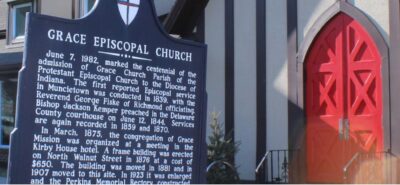 La Iglesia Episcopal de La Gracia en Muncie, Indiana, ha sido ubicada en el sureste del Centro de la ciudad de Muncie por los últimos 140 anos. A través de los años, el área alrededor de la Iglesia ha cambiado, y la Iglesia de La Gracia también, tras participar en varios proyectos vecinales y al generar muchas iniciativas de voluntariado, incluyendo su programa de alimentación, la “Gracia que Alberga”, la cual comenzó en el año 2008. Antes de la Pandemia, sirvieron más de 100 comidas caceras todos los domingos. Cuando la Pandemia empeoro, no fueron capaces de continuar administrando dichas comidas en persona, pero ello no se interpuso en la repartición de estas. Los voluntarios entregaban una ración de comida cacera cada domingo en un saco el cual incluía un emparedado para ingerir en horas posteriores como merienda, al igual que una botella de agua para su hidratación debida. El promedio era de alrededor de 70 comidas por semana y para ello se necesitaba un personal de seis a diez voluntarios ayudando todos los domingos. El Reverendo y Doctor Paul Jacobson, el rector de la iglesia, cree que la reapertura de la parroquia para la comunidad es el trabajo más importante que la parroquia efectúa.
La Iglesia Episcopal de La Gracia en Muncie, Indiana, ha sido ubicada en el sureste del Centro de la ciudad de Muncie por los últimos 140 anos. A través de los años, el área alrededor de la Iglesia ha cambiado, y la Iglesia de La Gracia también, tras participar en varios proyectos vecinales y al generar muchas iniciativas de voluntariado, incluyendo su programa de alimentación, la “Gracia que Alberga”, la cual comenzó en el año 2008. Antes de la Pandemia, sirvieron más de 100 comidas caceras todos los domingos. Cuando la Pandemia empeoro, no fueron capaces de continuar administrando dichas comidas en persona, pero ello no se interpuso en la repartición de estas. Los voluntarios entregaban una ración de comida cacera cada domingo en un saco el cual incluía un emparedado para ingerir en horas posteriores como merienda, al igual que una botella de agua para su hidratación debida. El promedio era de alrededor de 70 comidas por semana y para ello se necesitaba un personal de seis a diez voluntarios ayudando todos los domingos. El Reverendo y Doctor Paul Jacobson, el rector de la iglesia, cree que la reapertura de la parroquia para la comunidad es el trabajo más importante que la parroquia efectúa.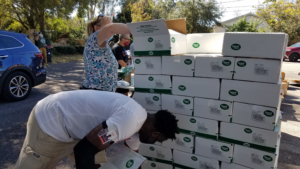 Nuestra iglesia está pasando por cambios. El primero de ellos es que nos estamos adaptando a estar en el medio de una pandemia, y el siguiente de los cambios, es que pasamos por un proceso de transición para darle la bienvenida a la nueva sacerdotisa. Nuestra nueva sacerdotisa apoya el ministerio de Mujeres de la Iglesia Episcopal y conmina al comité del Obispo junto al Grupo de Mujeres de la Iglesia Episcopal a continuar en la búsqueda mas allá de la misma iglesia para servir a la comunidad y sus necesidades. El Ministerio de Mujeres de la Iglesia Episcopal consiste en un grupo pequeño de mujeres dedicadas a esa tarea de manera exacta.
Nuestra iglesia está pasando por cambios. El primero de ellos es que nos estamos adaptando a estar en el medio de una pandemia, y el siguiente de los cambios, es que pasamos por un proceso de transición para darle la bienvenida a la nueva sacerdotisa. Nuestra nueva sacerdotisa apoya el ministerio de Mujeres de la Iglesia Episcopal y conmina al comité del Obispo junto al Grupo de Mujeres de la Iglesia Episcopal a continuar en la búsqueda mas allá de la misma iglesia para servir a la comunidad y sus necesidades. El Ministerio de Mujeres de la Iglesia Episcopal consiste en un grupo pequeño de mujeres dedicadas a esa tarea de manera exacta.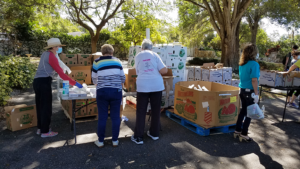 Our church is going through changes. The first is that we are adapting to being in the middle of a pandemic, and next, we are going through a transition period of welcoming a new priest. Our new priest supports our Episcopal Church Women ministry and urges our Bishop’s Committee along with our ECW to continue to look beyond our church walls to serve our community in its needs. Our ECW ministry consists of a small group of dedicated, caring women who do exactly that!
Our church is going through changes. The first is that we are adapting to being in the middle of a pandemic, and next, we are going through a transition period of welcoming a new priest. Our new priest supports our Episcopal Church Women ministry and urges our Bishop’s Committee along with our ECW to continue to look beyond our church walls to serve our community in its needs. Our ECW ministry consists of a small group of dedicated, caring women who do exactly that! La compañía “Cornerstone Kids” ha servido a la comunidad de “Tampa Heights” por 38 años. Comenzó a fungir como “Cornerstone Club” en el año 1984, fundada por el Reverendo Bruce Caldwell, quien fuera el rector de La Casa Episcopal de Oración. Su intención fue la de proveer un lugar seguro para los niños en la zona menospreciada de “Tampa Heights” para su entretenimiento y el poder evitar la negatividad del vecindario en cuestión. El Club fue financieramente apoyado por la iglesia y operada de manera exitosa dos o tres días a la semana por largos años.
La compañía “Cornerstone Kids” ha servido a la comunidad de “Tampa Heights” por 38 años. Comenzó a fungir como “Cornerstone Club” en el año 1984, fundada por el Reverendo Bruce Caldwell, quien fuera el rector de La Casa Episcopal de Oración. Su intención fue la de proveer un lugar seguro para los niños en la zona menospreciada de “Tampa Heights” para su entretenimiento y el poder evitar la negatividad del vecindario en cuestión. El Club fue financieramente apoyado por la iglesia y operada de manera exitosa dos o tres días a la semana por largos años.